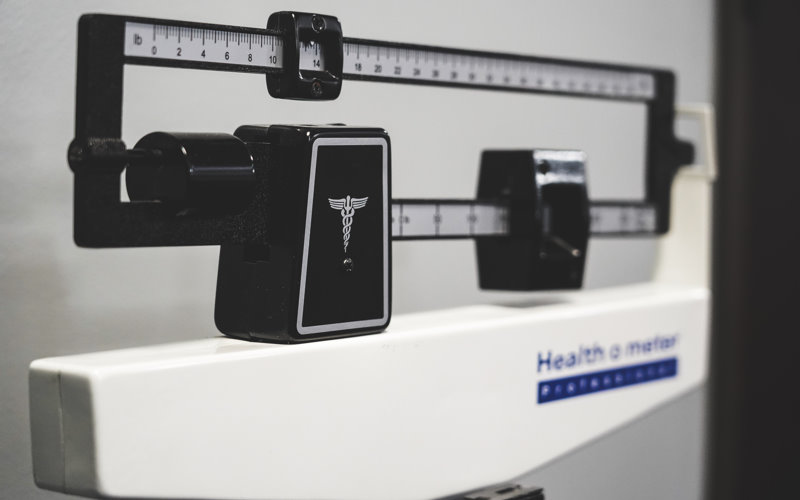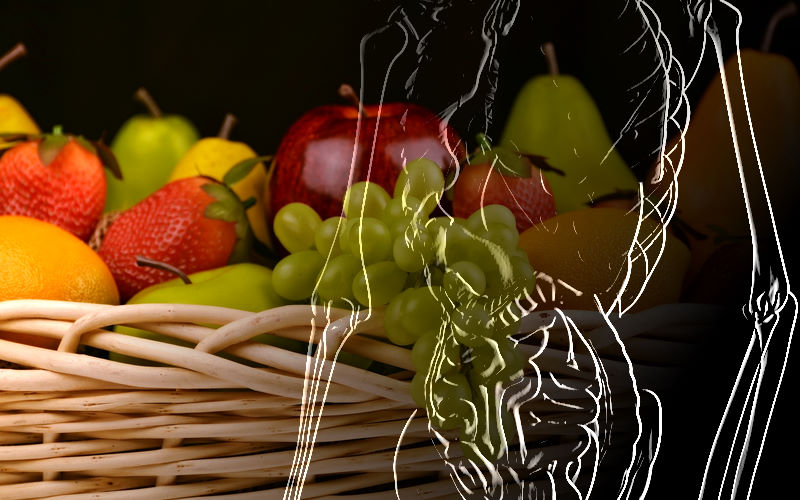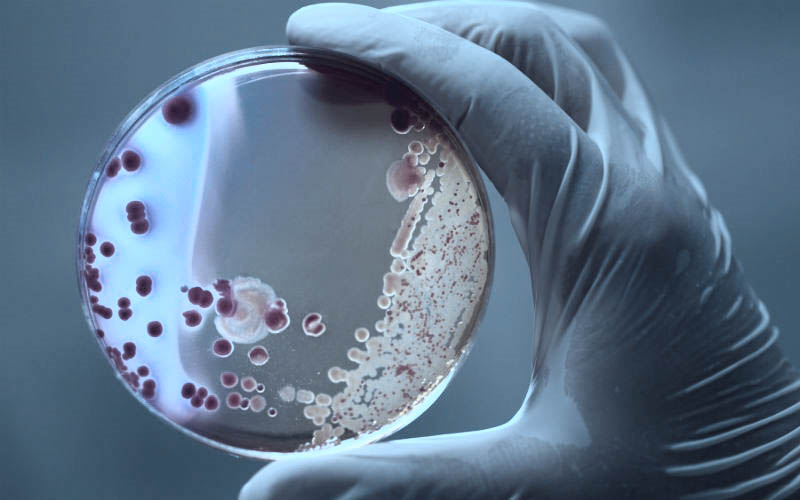Obesity and Metabolism

Ultra-processed foods score worse on food package labelling
Ultra-processed foods contain more calories, fat, saturated fat, sugar, and salt than minimally processed foods, but not all UPFs are unhealthy, according to UCL research.

BBC Panorama - Obesity: Who cares if I'm Bigger?
Dr Adrian Brown provides expert commentary on Panorama, which explores the complex reasons why some people find it difficult to lose weight.
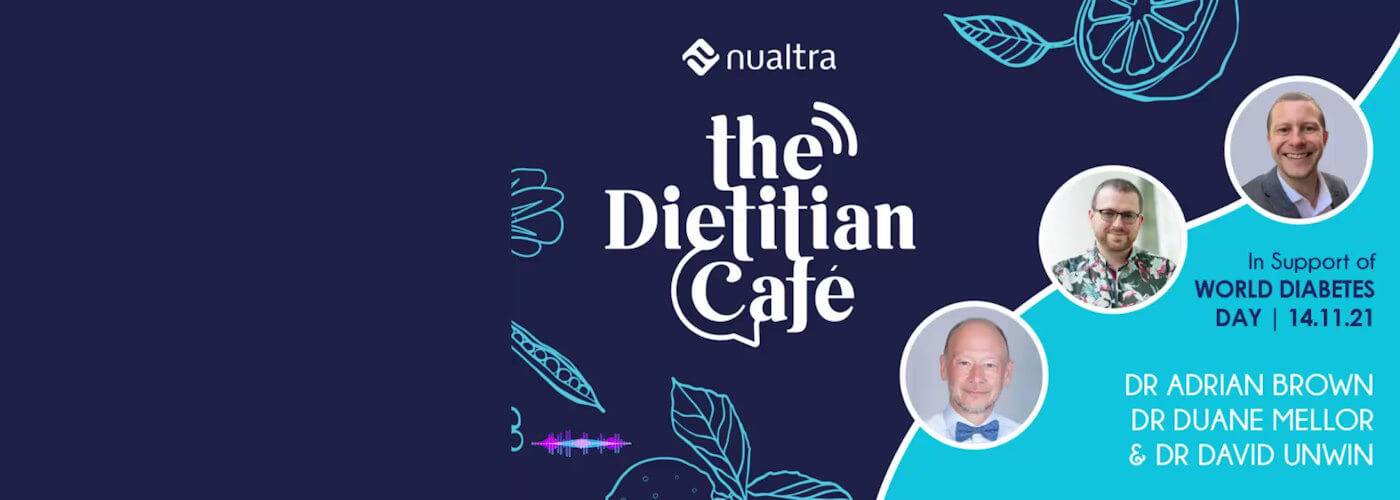
Unpacking the Diabetes Remission paper
Dr Adrian Brown joins The Dietitian Café to discuss a landmark review paper exploring dietary strategies for the remission of type 2 diabetes.

BBC Radio 4: A Thorough Examination - Addicted to Food
Dr Chris Van Tulleken and brother Xand talk to geneticist Dr Giles Yeo to understand how food environments affect our susceptibility to Ultra Processed Food.
Our ongoing research programmes combine basic science with studies in healthy human volunteers and obese and type 2 diabetic patients. Human studies are underpinned by detailed phenotyping including gut hormone profiling and functional brain imaging coupled with genetics, with the aim of developing personalised therapeutic strategies.
Our expertise lies in cell culture, generation of transgenic mice, energy and glucose homeostasis phenotyping of mouse models, immunohistochemistry, in situ hybridisation studies, microscopy, RNA and DNA isolation/analysis and quantification, ELISAs, radioimmunoassay, functional magnetic resonance imaging, phenotyping of healthy volunteers and patients.
- Investigating the Mechanisms Underlying Bariatric Surgery
Bariatric surgery is the most effective treatment option for obesity resulting in substantial and durable weight loss, with a reduction in mortality and obesity-related co-morbidities.
Obesity is the primary risk factor for type 2 diabetes mellitus (T2DM) which is characterised by insufficient insulin secretion and insulin resistance. Proximal gastric bypass surgery (PGBP) and sleeve gastrectomy (SG) reduce excess body weight by up to 80%. Also, most individuals with T2DM that undergo PGBP show immediate improved glycaemic control following surgery before significant weight loss. Whilst many therapeutic regimens aim to modulate glucose concentrations to prevent end-organ damage, bariatric surgery seems to be the only treatment modality with the potential to induce complete resolution of T2DM. However, the mechanisms underlying this process remain elusive.
Understanding how these surgical procedures induce sustained weight loss and resolution of T2DM holds the key to the development of more directed, less invasive therapies and is one of our key research focuses. There is increasing evidence that the reduced appetite and improved glucose homeostasis observed in the early postoperative period after certain types of bariatric surgery are due to alterations in circulating gut hormones.
To gain a further understanding of these processes, we undertake studies on patients undergoing bariatric surgery at UCLH. We have also established a mouse model of bariatric surgery to enable us to gain further mechanistic insights.
Key publications
- Chandarana K, Gelegen C, Irvine EE, Choudhury AI, Amouyal C, Andreelli F, Withers DJ, Batterham RL: Peripheral activation of the Y2-receptor promotes secretion of GLP-1 and improves glucose tolerance. Molecular Metabolism, 2: 142-152, 2013.
- Yousseif A, Emmanuel J, Karra E, Millet Q, Elkalaawy M, Jenkinson A, Hashemi M, Adamo M, Finer N, Fiennes A, Withers DJ, Batterham RL: Differential Effects of Laparoscopic Sleeve Gastrectomy and Laparoscopic Gastric Bypass on Appetite, Circulating Acyl-ghrelin, Peptide YY3-36 and Active GLP-1 Levels in Non-diabetic Humans. Obesity Surgery:1-12, 2013 DOI 10.1007/s11695-013-1066-0.
- Manning SB, Pucci A, Batterham RL, Finer N: Latent autoimmune diabetes in adults presenting as diabetes "recurrence" after bariatric surgery: a case report. Diabetes Care 36:e120, 2013.
- Scott WR, Gelegen C, Chandarana K, Karra E, Yousseif A, Amouyal C, Choudhury AI, Andreelli F, Withers DJ, Batterham RL: Differential pre-mRNA splicing regulates Nnat isoforms in the hypothalamus after gastric bypass surgery in mice. PLoS One 8:e59407, 2013.
- Gelegen C, Chandarana K, Choudhury AI, Al-Qassab H, Evans IM, Irvine EE, Hyde CB, Claret M, Andreelli F, Sloan SE, Leiter AB, Withers DJ, Batterham RL: Regulation of hindbrain Pyy expression by acute food deprivation, prolonged caloric restriction, and weight loss surgery in mice. Am J Physiol Endocrinol Metab 303:E659-668, 2012.
- Gaining Insights into how the Gut-Brain Axis Regulates Feeding Behaviour
Complex interrelated neuronal circuits have developed in the mammalian brain to regulate many aspects of feeding behaviour. An increased understanding of how peripheral energy signals act upon these circuits to regulate food intake is essential for the effective treatment of the current obesity crisis. We have shown that the gut hormone peptide YY (PYY) regulates feeding behaviour in rodents and humans and identified that the neuropeptide Y2 receptor is crucial for the anorectic effects of PYY.
By generating mice-lacking PYY, we have shown that this hormone plays a crucial role in the regulation of body weight. Moreover, we have shown that infusion of PYY reduces food intake in obese human subjects. Using fMRI in healthy male volunteers we have shown that PYY modulates neuronal activity within both homeostatic (hypothalamic and brainstem) and hedonic (orbitofrontal cortex) brain regions.
More recently, again using fMRI, we have shown that the neural response to visual food images within key brain appetite and reward brain regions in markedly altered in normal-weight subjects carrying two copies of the obesity-risk FTO gene variant.
Key publications
- Karra E, O'Daly OG, Choudhury AI, Yousseif A, Millership S, Neary MT, Scott WR, Chandarana K, Manning S, Hess ME, Iwakura H, Akamizu T, Millet Q, Gelegen C, Drew ME, Rahman S, Emmanuel JJ, Williams SC, Ruther UU, Bruning JC, Withers DJ, Zelaya FO, Batterham RL: A link between FTO, ghrelin, and impaired brain food-cue responsivity. J Clin Invest 123:3539-3551, 2013.
- Neary MT, Batterham RL: Gaining new insights into food reward with functional neuroimaging. Forum Nutr 63:152-163, 2010.
- Batterham RL, Ffytche DH, Rosenthal JM, Zelaya FO, Barker GJ, Withers DJ, Williams SC: PYY modulation of cortical and hypothalamic brain areas predicts feeding behaviour in humans. Nature 450:106-109, 2007.
- Gut Hormones and Exercise
In collaboration with Dr David Stensel's group at Loughborough University, we have undertaken a series of studies that have investigated the effects of different types of exercise (aerobic or resistance) and exercise intensity on appetite and gut hormones.
We have found that aerobic exercise causes the greatest suppression of hunger and leads to a more favourable profile of appetite-regulating hormones (lower ghrelin and higher PYY). In addition, we have shown that high-intensity intermittent exercise produces greater appetite suppression with concomitant higher circulating PYY3-36 concentrations than energy-matched continuous exercise.
We are now investigating the mechanisms underlying these gut hormone changes.
Key references
- Deighton K, Karra E, Batterham RL, Stensel DJ: Appetite, energy intake, and PYY3-36 responses to energy-matched continuous exercise and submaximal high-intensity exercise. Appl Physiol Nutr Metab 38:947-952, 2013.
- Wasse LK, Sunderland C, King JA, Batterham RL, Stensel DJ: Influence of rest and exercise at a simulated altitude of 4,000 m on appetite, energy intake, and plasma concentrations of acylated ghrelin and peptide YY. J Appl Physiol 112:552-559, 2012.
- King JA, Wasse LK, Ewens J, Crystallis K, Emmanuel J, Batterham RL, Stensel DJ: Differential acylated ghrelin, peptide YY3-36, appetite, and food intake responses to equivalent energy deficits created by exercise and food restriction. J Clin Endocrinol Metab 96:1114-1121, 2011.
- Broom DR, Batterham RL, King JA, Stensel DJ: Influence of resistance and aerobic exercise on hunger, circulating levels of acylated ghrelin, and peptide YY in healthy males. Am J Physiol Regul Integr Comp Physiol 296:R29-35, 2009.
- Insights from Genetics
Genome-wide association studies have identified several obesity SNPs. However, the mechanisms by which these SNPs mediate their effects on body weight are unclear. We are undertaking detailed phenotype/genotype studies in normal-weight subjects and obese patients to gain insights into the biology of obesity risk.
Key references
- Mägi R, Manning S, Yousseif A, Pucci A, Santini F, Karra E, Querci G, Pelosini C, McCarthy MI, Lindgren CM, Batterham RL: Contribution of 32 GWAS-Identified Common Variants to Severe Obesity in European Adults Referred for Bariatric Surgery. PLoS One 8:e70735, 2013.
- Karra E, O'Daly OG, Choudhury AI, Yousseif A, Millership S, Neary MT, Scott WR, Chandarana K, Manning S, Hess ME, Iwakura H, Akamizu T, Millet Q, Gelegen C, Drew ME, Rahman S, Emmanuel JJ, Williams SC, Ruther UU, Bruning JC, Withers DJ, Zelaya FO, Batterham RL: A link between FTO, ghrelin, and impaired brain food-cue responsivity. J Clin Invest 123:3539-3551, 2013.
- Collaborative projects
UCL / UCLH
- Dr M. Banks (Gastroenterology)
- Professor J. Deanfield (Institute of Cardiovascular Science)
- Professor R. Dolan (Wellcome Trust Center for Neuroimaging, UCL)
- Professor N. Donos (Eastman Dental)
- Mr P. Hardiman (Women's Health)
- Professor H. Montgomery (Medicine)
- Dr A Jones (Institute of Cardiovascular Science)
- Professor R. Viner (Adolescent Health)
- Professor J. Wardle (Epidemiology and Public Health)
External
- PI on MRC International Mouse Phenotyping Consortium (Cambridge, Oxford and Imperial College),
- Dr D. Stensel (Loughborough, UK)
- Professor F. Gribble (Cambridge. UK)
- Professor S.C. Williams (King's College London, UK)
- Professor D.J. Withers (Imperial College, UK),
- Professor M. McCarthy (Oxford, UK), Dr F. Andreelli (Cochin Institute, Paris)
- Professor F. Santini (Pisa University)
- Dr R. Magi (Estonia University)
- Professor J. Bruening (University of Cologne)
- Dr A. Leiter (University of Massachusetts)
- Dr C. Lindgren (Broad Institute of MIT and Harvard, Boston USA)
- Dr H. Iwakura (Kyoto University Hospital, Japan).
Our experts

Dr Adrian Brown (Head)
NIHR Advanced Fellow, Senior Research Fellow

Dr Janine Makaronidis (Head)
Senior Clinical Research Associate & Honorary Consultant

Dr Sulmaaz Qamar
Clinical Research Fellow

Dr Ritwika Mallik
Clinical Research Fellow

Dr Benjamin Norton
Clinical Research Fellow

Dr Fred Jassil
Clinical Research Dietitian

Nausheen Hamid
Senior Specialist Dietitian, Bariatrics and Research

Alanna Brown
Clinical Trial Coordinator

Chloe Firman
Research Assistant / PhD Student

Sam Dicken
PhD Student

Tapiwa Ruwona
Clinical Research Nurse & Registered Dietitian

Monika Kallis
Research Assistant
Publications
- Norton BC, Telese A, Papaefthymiou A, Aslam N, Makaronidis J, Murray C, Haidry R (2023). Metabolic and Bariatric Endoscopy: A Mini-Review. Life. 2023; 13(9):1905.
- Mok J, Adeleke MO, Brown A, Magee CG, Firman C, Makahamadze C, Jassil FC ... Batterham RL, Makaronidis J (2023). Safety and Efficacy of Liraglutide, 3.0 mg, Once Daily vs Placebo in Patients With Poor Weight Loss Following Metabolic Surgery: The BARI-OPTIMISE Randomized Clinical Trial. JAMA Surg. 2023 Jul 26:e232930.
- Jassil FC, Carnemolla A, Kingett H, Doyle J, Kirk A, Lewis N, Montagut G, Marvasti P, Boniface D, Brown A, et al. (2023). Impact of nutritional-behavioral and supervised exercise intervention following bariatric surgery: The BARI-LIFESTYLE randomized controlled trial. Obesity (Silver Spring). 2023 Aug;31(8):2031-2042.
- Wingrove J, Makaronidis J, Magee C et al. (2023) Aberrant Olfactory Network Functional Connectivity in People with Olfactory Dysfunction Following COVID-19 Infection: An Exploratory, Observational Study. E Clinical Medicine
- Makaronidis JM, Pucci A, Adamo M, Jenkinson A, Elkalaawy M, Batterham RL (2022). Impact of sleeve gastrectomy compared to Roux-en-Y gastric bypass upon hedonic hunger and the relationship to post-operative weight loss. Intern Emerg Med. 2022 Oct;17(7):2031-2038.
- Brown A, Flint SW, Batterham RL. (2022). Pervasiveness, impact, and implications of weight stigma. eClinicalMedicine, 47.
- Makaronidis J, Firman C, Magee CG, et al (2021). Distorted chemosensory perception and female sex associate with persistent smell and/or taste loss in people with SARS-CoV-2 antibodies: a community-based cohort study investigating clinical course and resolution of acute smell and/or taste loss in people with and without SARS-CoV-2 antibodies in London, UK. BMC Infect Dis 21, 221 (2021) Feb 25;21(1):221.
- Busetto L, Bettini S, Makaronidis J, Roberts CA, Halford JCG, Batterham RL (2021). Mechanisms of weight regain. Eur J Intern Med. 2021 Nov;93:3-7.
- Brown A, Flint SW, Kalea AZ, O'Kane M, Williams S, Batterham RL (2021). Negative impact of the first COVID-19 lockdown upon health-related behaviours and psychological wellbeing in people living with severe and complex obesity in the UK. EClinicalMedicine. 2021 Apr;34:100796. Epub 2021 Mar 18.
- Makaronidis J, Mok J, Balogun N, Magee CG, Omar RZ, Carnemolla A, Batterham RL (2020). Seroprevalence of SARS-CoV-2 antibodies in people with an acute loss in their sense of smell and/or taste in a community-based population in London, UK: An observational cohort study. PLoS Med. 2020 Oct 1;17(10):e1003358.
- Makaronidis JM, Batterham RL (2019). The role of gut hormones in the pathogenesis and management of obesity. Current Opinion in Physiology, 2019, Vol. 12, 1-11.
- Makaronidis JM, Batterham RL. Obesity, body weight regulation and the brain: insights from fMRI. Br J Radiol. 2018 Sep;91(1089):20170910.
- Pucci A, Tymoszuk U, Cheung WH, Makaronidis JM, Scholes S, et al (2017). Type 2 diabetes remission 2 years post Roux-en-Y gastric bypass and sleeve gastrectomy: the role of the weight loss and comparison of DiaRem and DiaBetter scores. Diabet Med. 2018 Mar;35(3):360-367.
- Busetto L, Dicker D, Azran C, Batterham RL, Farpour-Lambert N, Fried M, Hjelmesaeth J, Kinzl J, Leitner DR, Makaronidis JM, et al (2017). Practical Recommendations of the Obesity Management Task Force of the European Association for the Study of Obesity for the Post-Bariatric Surgery Medical Management. Obesity facts. 2017;10(6):597-632.
- Makaronidis JM, Batterham RL (2016). Potential Mechanisms Mediating Sustained Weight Loss Following Roux-en-Y Gastric Bypass and Sleeve Gastrectomy. Endocrinol Metab Clin North Am. 2016 Sep;45(3):539-52.
- Makaronidis JM, Neilson S, Cheung WH, Tymoszuk U, et al (2016). Reported appetite, taste and smell changes following Roux-en-Y gastric bypass and sleeve gastrectomy: Effect of gender, type 2 diabetes and relationship to post-operative weight loss. Appetite. 2016 Dec 1;107:93-105.
Funding and Partnerships
Research funding
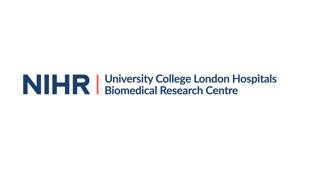
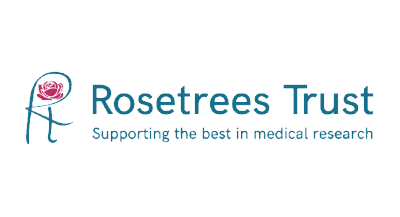

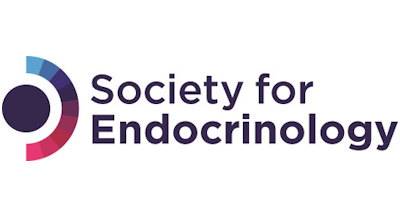
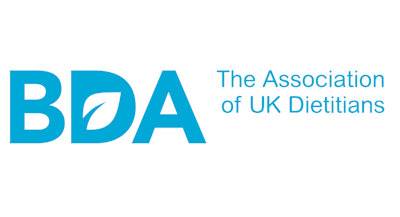


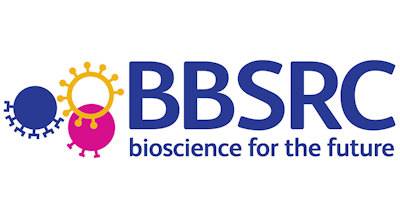
Charities
- Obesity Empowerment Network
- Academic of Nutrition Science
Collaborators
- University of Leeds
- University of Aberdeen
- Leeds Beckett University
- University of Liverpool
- Robert Gordon University
- King College London
- University of Oxford
- University of Leicester
- Aston University
- University of Cambridge
- Homerton University Hospital
- Queen Mary University London
Related Programmes
Media
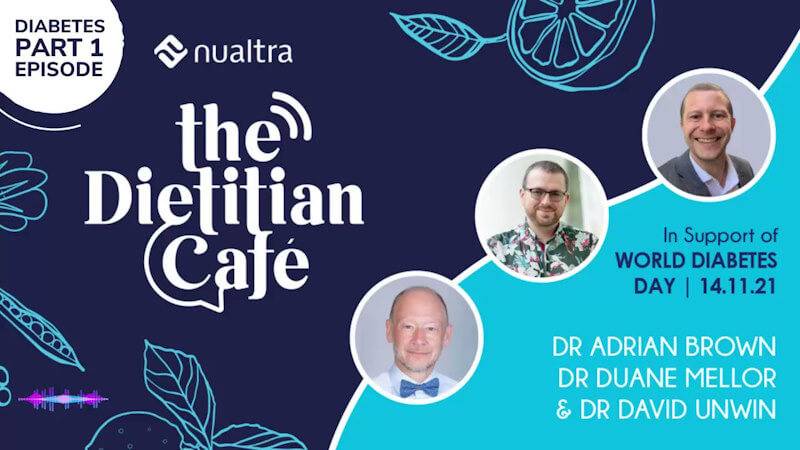
Dr Adrian Brown discusses diabetes remission on The Dietitian Cafe.

Dr Adrian Brown features on BBC Panorama discussing obesity.
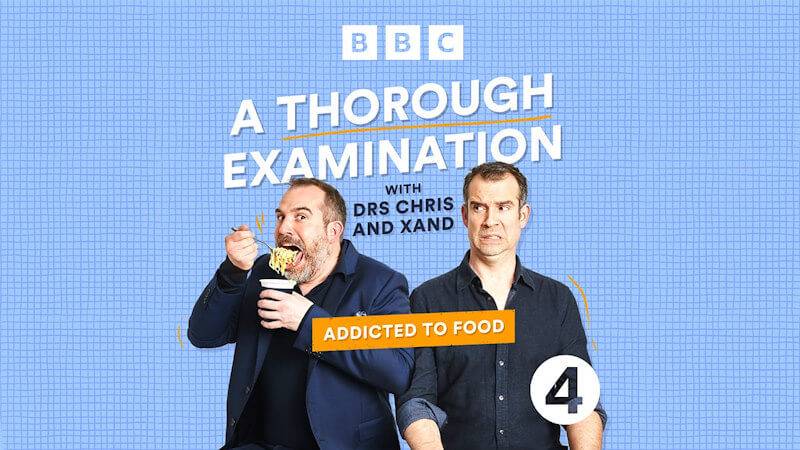
Dr Chris Van Tulleken and brother Xand talk discuss addiction to Ultra Processed Food.
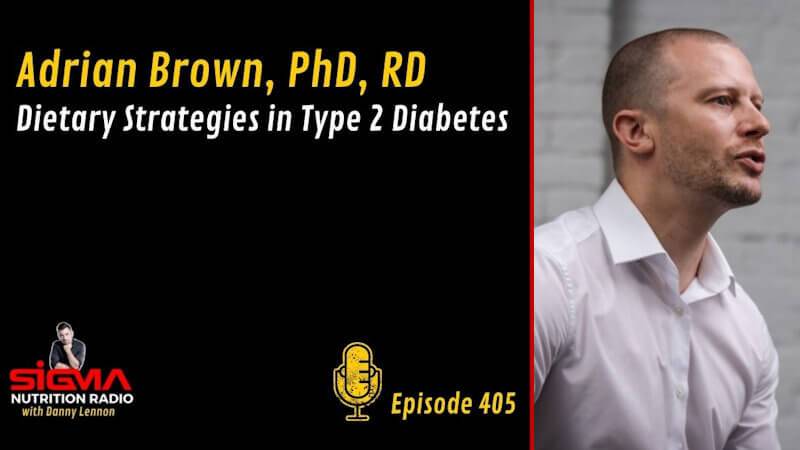
Dr Adrian Brown discusses dietary strategies in Type 2 Diabetes remission.
 Close
Close


